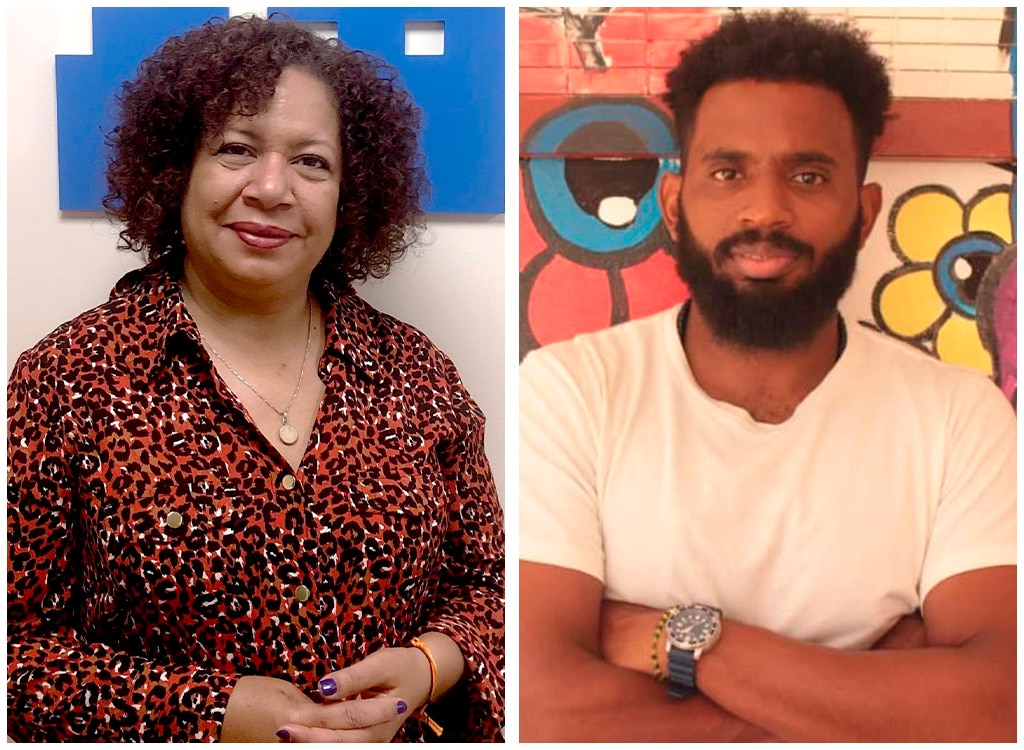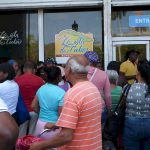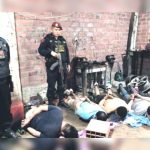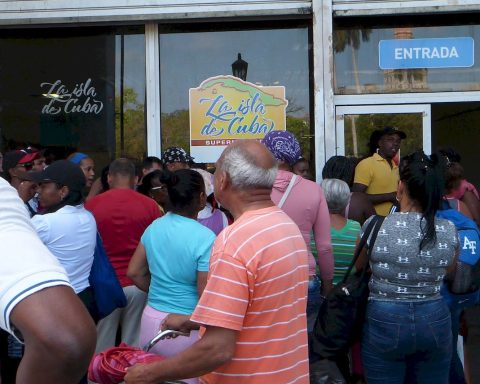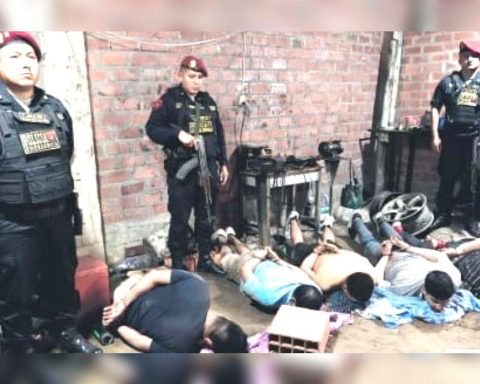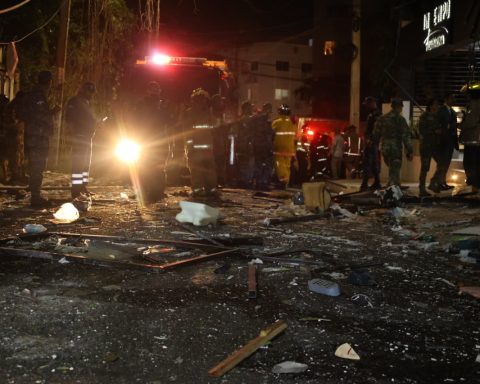Nicaragua, Cuba and Venezuela are countries with constant violations of press freedom, without the protection of a rule of law. The confiscations of media outlets, imprisonment and harassment of reporters, blocking of their websites and the mass exile of journalists; they are part of everyday life in these three countries. But the way independent media are standing up to authoritarian regimes is critical to preventing an attempted media blackout.
In In Nicaragua, the regime of Daniel Ortega and Rosario Murillo has closed 54 media outlets, confiscated another three, is holding eight journalists and media workers prisoner, and has forced 140 journalists into exile. Meanwhile, in Venezuela and Cuba, the regimes of Nicolás Maduro and Miguel Díaz-Canel apply measures to block the internet to digital media.
the journalist Luz Mely Reyes, director and co-founder of the digital medium Cocuyo Effectpoints out that —for more than twenty years of application of a censorship model in Venezuela— “information deserts” have occurred in that country and an incalculable number of journalists had to leave the country and have not been able to return. In addition, in recent years, the siege against the independent press has been anchored in the justice system.
Reyes, an internationally recognized journalist, pointed out that in Venezuela media journalists who are digital natives have been accused and brought to trial for alleged crimes of defamation. Criminal proceedings that have concluded with sentences of “prohibitions from leaving the country” or, on the contrary, as happened with the investigative medium Armando.info, that its editors have not been able to return to Venezuela for four years.
“We have several stages of dismantling the media industry in Venezuela,” Reyes warned during a panel on the program This week. “As of 2017, blockades of different media began to occur and already in this year 2022 a policy of blocking independent digital media was adopted, which includes media that are abroad and media in Venezuela and that also involves private operators of telecommunications,” he said.
In Cuba, the situation “is not very different,” said the Cuban journalist Abraham Jimenez Enoaa columnist for The Washington Post, who went into exile in January 2022. Although internet access on the island barely dates back to 2015, emerging digital media are informing citizens and have therefore become a target to be watched by part of the Cuban regime.
The digital media “began to count the country, the dark areas that until then had not been counted and obviously that bothered the Government a lot,” Jiménez explained. From that moment on, the Cuban regime began to design “a strategy of repression to silence all those media,” he stressed.
The Cuban regime’s strategy of censorship of digital media began with “the blocking of media on the Internet,” in such a way that “Cubans cannot access from Cuba to read their articles, they must enter through VPN,” he explained. Jimenez. Then, as of 2017, “the harassment, a disastrous day to day, of house arrests, express arrests, persecution, intervention of private communications” continued, which has caused many journalists from these digital media to have had to leave the country.
A new journalism from exile
Although the panorama of press freedom in Cuba, Nicaragua and Venezuela “is extremely sad”, Jiménez values that “we are facing a new scenario where journalism has to be done from exile” and, fortunately for the independent media, the people have a lot of confidence in them.
“Obviously there is a lot of fear, there is a lot of fear, but precisely as the country (Cuba) is in a state of extremely serious impoverishment and as citizens have no voice… then all those people who are suffering and who know and who live that impoverished reality , that extremely serious reality, wants to talk and wants to tell what he is experiencing, “said Jiménez.
For the Cuban journalist, in the first years of the persecution of digital media on the island “there was much more fear,” but now these media are the spokespersons for everything that has happened in the country. “You cannot see everything that has happened in the new Cuban civil society without the independent press. The independent press is the one that has accompanied all these processes of the opposition, all those processes of the creation of independent organizations”, he continued.
Reyes maintains that, faced with this hostile scenario, “the vaccine we have is to do more and better journalism.” Despite the authoritarian drift in the region, “very high-quality journalism” is being produced, he commented.
Alliances have also been fundamental in being able to deal with state censorship. “Not only among media outlets have we developed a whole strategy of collaborative journalism, but also with civil society organizations, which had already been working in Venezuela for a long time and the independent media began to see us as part of that civic space that we did not understand, because We generally came from media outlets that were private organizations,” he explained.
However, Reyes lamented that the strategies of coverage and dissemination of information continue to be “like a field of experimentation of how an authoritarian system works in which the media and journalists are declared enemies, but also how the journalists themselves look for ways to open different windows to be able to do what we love and the vocation that has called us, which is to do journalism”.
On the other hand, the migration of traditional newspapers to digital platforms and the emergence of new media on the Internet raises the need to be able to guarantee their sustainability.
“The main challenge is to continue existing”
For Jiménez, the main challenge for journalism in countries like Nicaragua, Cuba and Venezuela is “to continue to exist” and “to continue telling the country.” “Not because we live under that crossfire and live, now, in exile our entire generation, we are not going to stop counting the country,” she reflected.
Jiménez also valued that in these three countries there are strong migratory waves that make, for example, that “Cuba is no longer limited to the reality of the island, but all that mass that is scattered around the world is also part of of Cuba, and it is also important to tell the stories of those Cubans who have left the island precisely because of that reality.”
Another challenge for independent journalism in exile “is not letting quality fall,” Jiménez said. It is necessary to “continue devising strategies so that those who are inside Cuba continue to access those media and continue devising strategies to reach more people, to capture more sources of information.” In the end, “journalism is about controlling power and if we are facing a power of this type, unfortunately we have to suffer the consequences,” he stressed.
Reyes insisted that another of the great challenges of digital journalism is sustainability. “Being independent media, in order to be able to sustain ourselves, we need resources. To do good journalism, we also need resources, so we must be aware that the sustainability of these media, both in Cuba and in Nicaragua, is important,” he emphasized.
In this sense, Reyes pointed out that it is necessary to discuss financing and support systems for independent media from different instances, “either from philanthropy or from organizations that are aware that the media operate in an authoritarian framework.”
Reyes concluded that “as long as we make the content, as long as we do independent journalism, there will be a number of people, some audiences -both inside and outside the country- that are going to seek that information and distribute it.” It is for this reason that he points to the need to “persist in doing the best journalism we can.”
